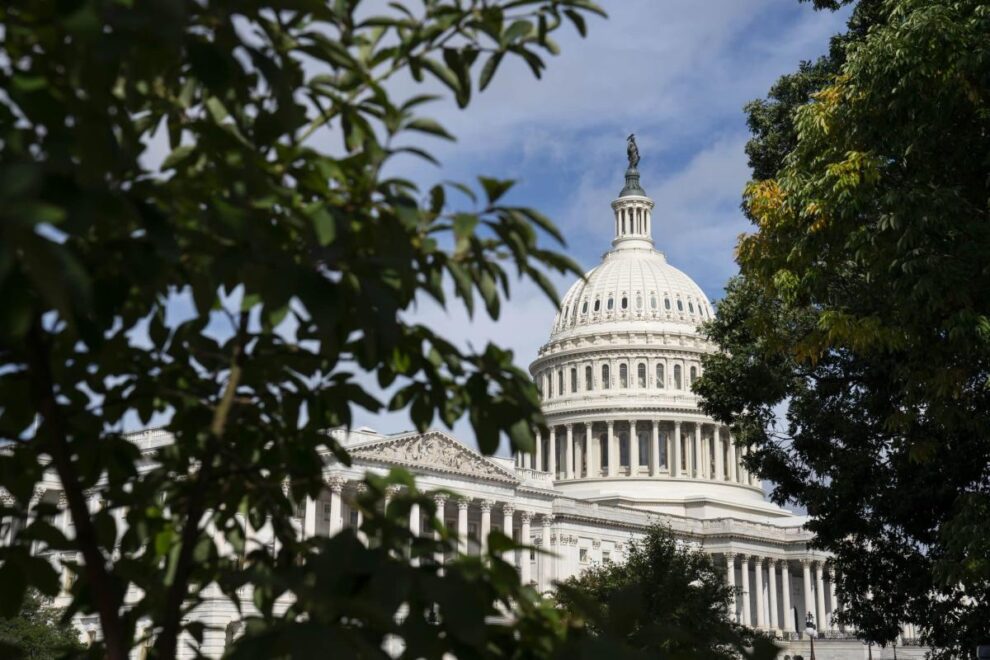
(Bloomberg) — Undecided lawmakers are facing a barrage of lobbying from Alphabet Inc.’s Google, Amazon Inc., tech trade groups and progressive advocates ahead of a planned vote later this month on antitrust legislation to rein in the largest tech platforms.
Most Read from Bloomberg
Senate Majority Leader Chuck Schumer has pledged a floor vote this month on legislation sponsored by Senators Amy Klobuchar, a Minnesota Democrat, and Chuck Grassley, a Nebraska Republican, to prohibit companies like Apple Inc., Amazon, Google, Microsoft and Facebook parent Meta Platforms Inc. from favoring their own products.
The House, which advanced its own package of antitrust measures last summer, is also expected to take up the legislation.
“There’s a lot of momentum behind both of these bills,” Representative David Cicilline, a Rhode Island Democrat who chairs the House Judiciary antitrust subcommittee, said on a call Monday evening. “They have significant bipartisan support, and they will pass when they come to the chambers in the coming weeks.”
Lawmakers have only seven weeks left to pass legislation before the August recess, after which they pivot to campaigning for the November midterm elections. That leaves an increasingly narrow window as Congress weighs competing priorities including potential legislation on gun safety, the war in Ukraine, consumer privacy and climate.
The Big Tech companies claim the bill would harm popular products like Amazon Prime and Google Maps while increasing cybersecurity risks. Amazon said last week that the bill unfairly targets it and likely would force the company to shutter its marketplace used by third-party sellers.
Apple, Amazon, Google and Meta spent $16.7 million lobbying in the first three months of 2022, with all four identifying the antitrust bills as their top priority, according to lobbying disclosures filed with Congress. Tech-backed trade groups have also weighed in against the bills, with the Computer and Communications Industry Association spending $22 million last week on broadcast and cable TV ads, according to Ad Impact, and another $2.8 million on Facebook and Instagram ads since the beginning of the year.
Advocates for the bills, which include a barrage of smaller tech companies such as Spotify Technologies SA, Tinder parent Match Group Inc. and Yelp Inc., argue the legislation will help bring competition to markets now dominated by the tech giants.
The bill’s sponsors released a revised version last month, specifying subscription services are not included and seeking to address some of the cybersecurity concerns. Despite the changes, a number of undecideds remain, on both sides of the aisle.
Senator John Thune from South Dakota, the chamber’s No. 3 Republican, said Monday he remains uncommitted though he described himself as “interested” in the bill.
Progressive tech advocacy group Fight for the Future began a crowdfunding campaign Monday to pay for billboard ads targeting two Democrats — Senators Maggie Hassan of New Hampshire and Michael Bennet of Colorado — to support the legislation and stop “shilling for big tech.” Hassan and Bennet both face tough reelection fights in November.
Senator Elizabeth Warren, the Massachusetts Democrat, said Monday she would vote in favor of the legislation. Warren, who made antitrust a focus of her campaign for the 2020 Democratic nomination, introduced her own more wide-ranging antitrust overhaul in March and hadn’t publicly committed to supporting the tech antitrust legislation.
“The massive power that these giant corporations have given them outsized political influence,” she said. “Right now, they are showing off that influence and exercising their muscles to try to scare off legislators who might put some pressure on those monopolies.”
Senator Brian Schatz of Hawaii, another as-yet undecided, said the chamber should focus on climate change and curbing gun violence before moving to digital issues such as privacy and antitrust.
“I’m prioritizing the issues that I think are more urgent, the planet and children being killed,” said Schatz, who is also up for reelection in November.
Most Read from Bloomberg Businessweek
©2022 Bloomberg L.P.











Add Comment